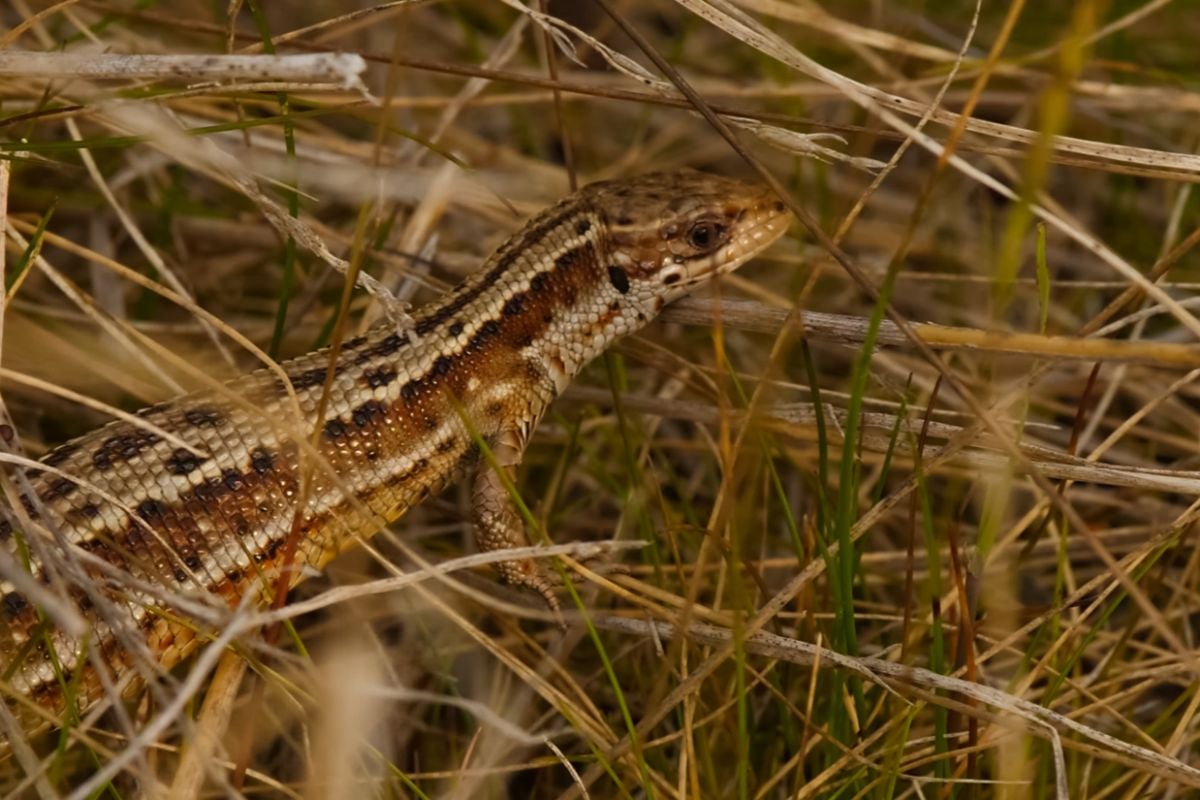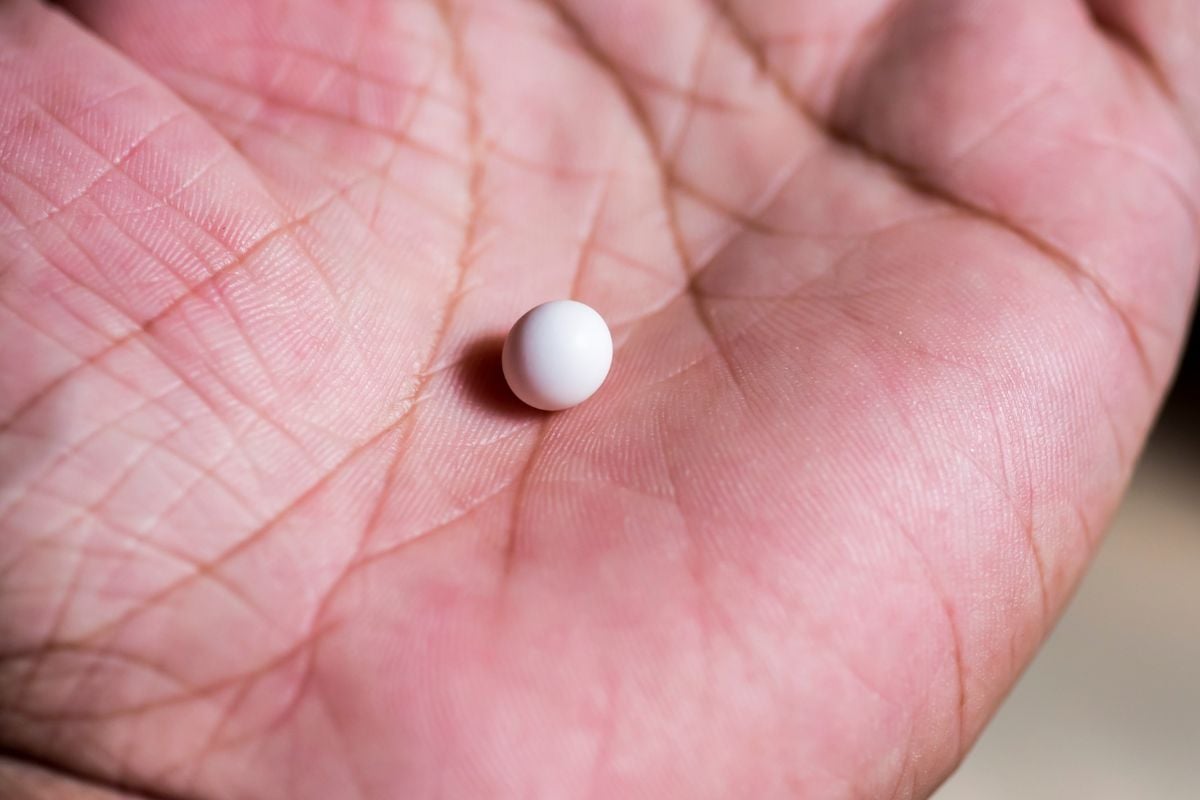If you’ve been caring for a female lizard for a few years, and you notice that they have finally begun laying some eggs, the biggest question on your mind is inevitably going to be, how long until they hatch?

This isn’t a question asked only out of curiosity, it is also necessary to know the answer so that you are well aware of when you will need to start preparing for some babies to appear so that they can feel as comfortable and safe as possible in their new home.
Luckily, we’ve got all the answers right here so that you know how many more days it will be until some new reptilians are added to the family.
We have also included some tips and information on how to correctly care for lizard eggs to make your job a little easier.
How Long After Mating Will A Lizard Lay Eggs?
After the mating process, the female lizard will lay her eggs after 2 to 4 weeks. Many lizards will lay up to three batches of eggs per season, which can result in a whole family of new babies all at once when they finally hatch.
How Many Eggs Are Laid At Once?
This really depends on the type of lizard and its size. For bigger species such as iguanas, they are capable of laying more than 50 eggs in one batch, while leopard geckos for example will only lay around 8 to 10.
While lizard eggs are generally very easy to care for, this can be a much more challenging task if you have a bigger lizard, and in some cases, you may even need to buy a more spacious tank to fit in all the new family members.
When Will The Eggs Start To Hatch?

On average, it takes between 40 and 60 days for baby lizards to finally emerge out of their eggs. Because lizards tend to breed in the spring and early summer, this means that the hatchlings will not appear until mid to late summer or early fall.
This time frame is ideal for baby lizards since it means that they have enough time to familiarize themselves with their surroundings before the winter arrives, and they must find a deep crevice or burrow to hide in.
While baby lizards are known for being surprisingly independent as soon as they are free to venture the world, the mother will still provide minimal care in many cases, just to make sure they don’t scurry off and get eaten by predators too quickly.
Can Lizards Lay Eggs Asexually?
Most female lizards will only be able to become pregnant through sexual reproduction, but those belonging to the Aspidoscelis genus reproduce asexually because of the simple fact that they have no male lizards as part of their species.
These parthenogenetic lizards, such as the New Mexico whiptail, are actually incredibly fascinating and have been the focus of animal biologists for many years because of how unique they are in their reproductive cycle.
One big reason why they stand out so much is that, unlike many other creatures in the animal kingdom that produce their offspring without a mate, the DNA of these lizards’ offspring will be different with each generation.
Another interesting observation that scientists have observed is how many lizards belonging to the Aspidoscelis genus will even act out a type of pseudocopulation where two females will act as if they are having sex which may increase their fertility and produce more eggs.
How To Care For Lizard Eggs

Lizard eggs are incredibly delicate and fragile and they can become unhealthy very quickly if they aren’t exposed to the correct conditions and environment.
Here are a few of the most important things to keep in mind when you have a brand new batch to take care of.
Pick Up An Incubator
If you’re someone who hasn’t had much experience with managing lizard eggs, an incubator is an extremely handy tool to help care for them where they will remain within a safe and comfortable space where you can easily adjust the temperature.
The most important thing is to make sure the incubator is big enough to fit the entire batch, so always measure a new container before deciding to buy it.
It can be a worthwhile idea to keep the babies in the incubator for at least 24 hours after they hatch so that they don’t become stressed or worried about a sudden change in temperature.
Remember that baby lizards will be able to fend for themselves as soon as they are born, so keeping them from their mother for a while after they are born won’t be a problem.
Always Maintain The Correct Temperature
While the exact temperature can differ slightly depending on the species, most lizard eggs will need to be exposed to between 80 and 90 degrees Fahrenheit.
This is only a few degrees hotter than what most living lizards would find comfortable anyway, so once they are born, they can gradually ease into the slightly milder heat after being removed from the incubator and placed into the tank.
Prevent The Eggs From Rotating
If a lizard egg rotates, it can put the baby in extreme danger of drowning, so it’s crucially important to constantly check that they are always left in their original orientation.
Unlike with birds, embryos in reptile eggs become attached to the side of the egg once they are laid, so if the egg rotates, it can mean that the fragile and weak embryo will detach and die as a result.
An easy way to keep track of this is by using a graphite pencil to mark an X on the top of each egg, and if you notice that they have somehow turned slightly, gently return them to their original position.
Adjust The Humidity To Avoid Mold
Lizard eggs that don’t receive enough ventilation can fall victim to mold, which after a while, can end up killing the embryo, so it’s important to always set your incubator humidity to around 80%, and if you spot just a little bit of mold, brush it off as quickly as possible.
Summary
Once a female lizard has become pregnant, it won’t be long at all until the babies finally hatch, so try to make some room for when the new arrivals appear, and always make sure that you are caring for the eggs properly so that the babies come out 100% healthy.
- Can Leopard Geckos Eat Silkworms? - March 11, 2024
- Do Leopard Geckos Climb? - March 4, 2024
- Do Leopard Geckos Bask? The Answer Will Surprise You - February 21, 2024
